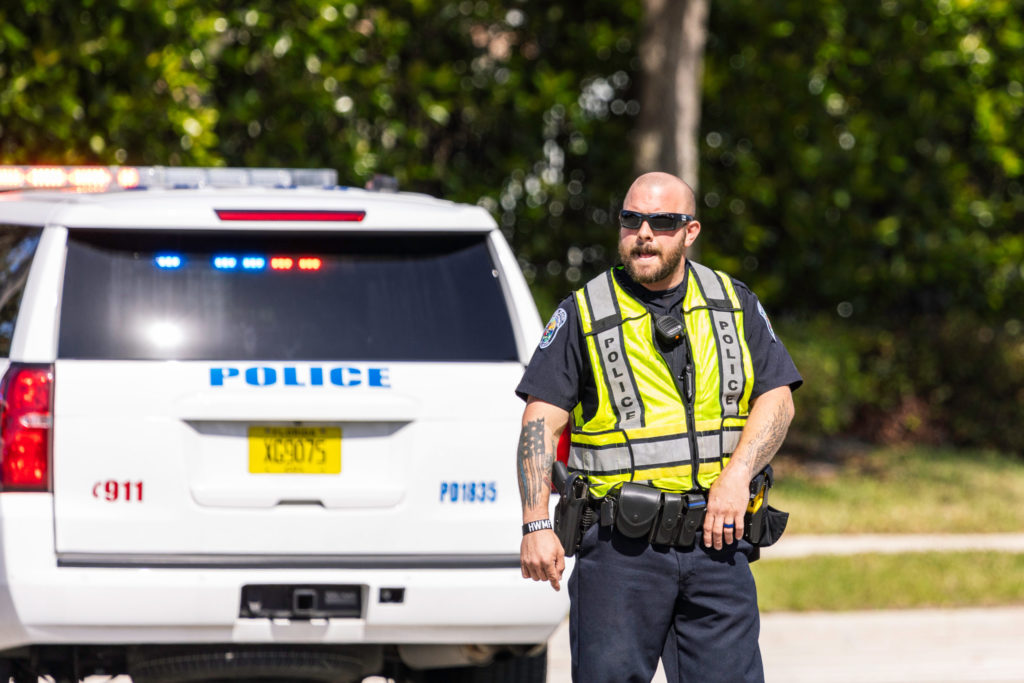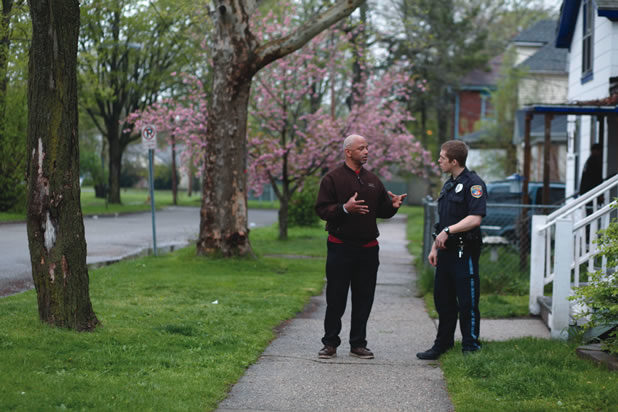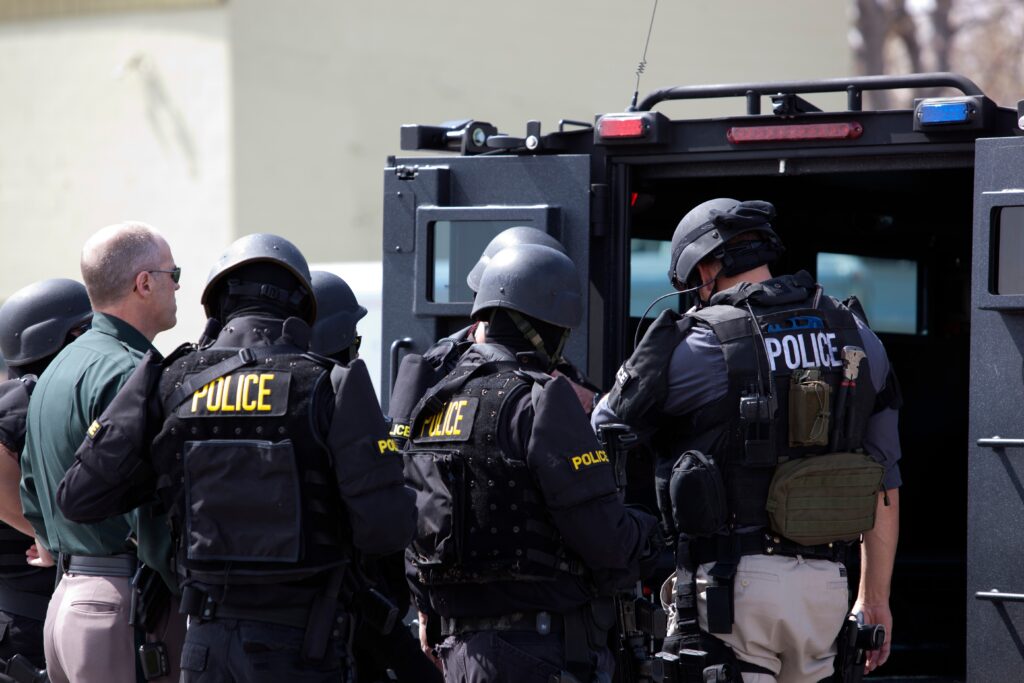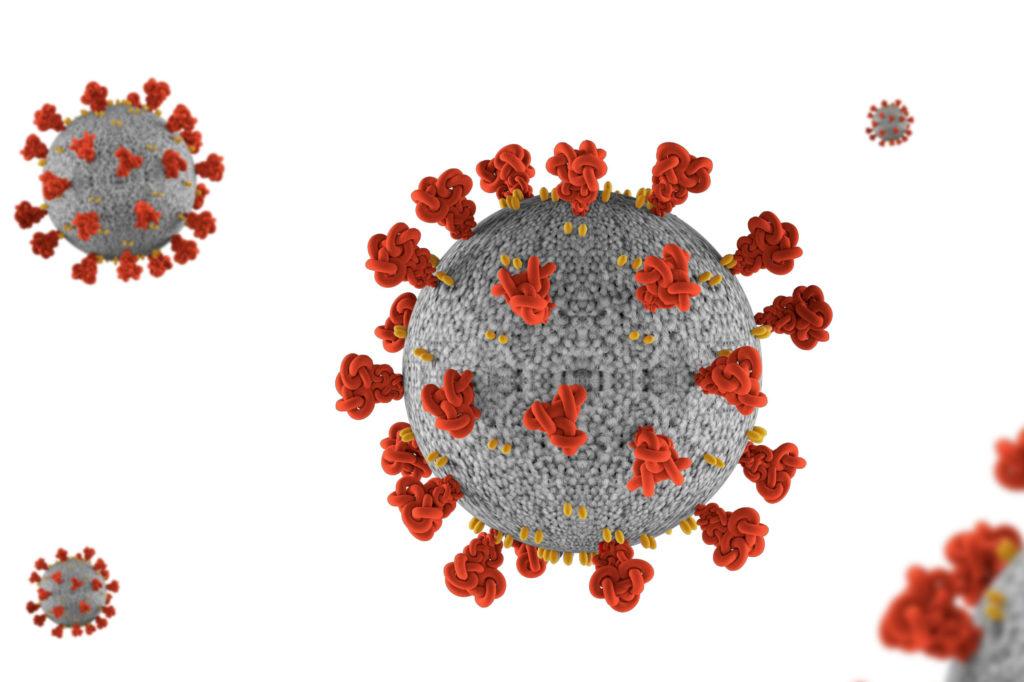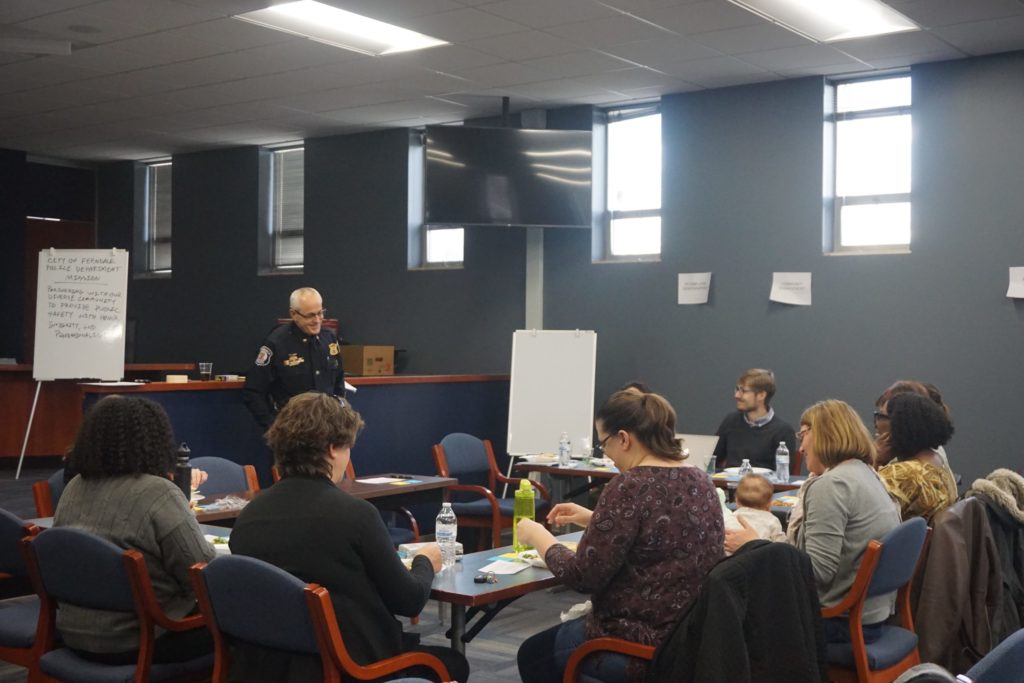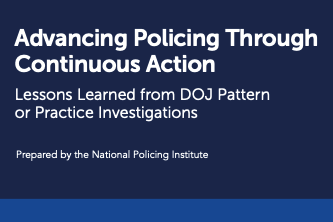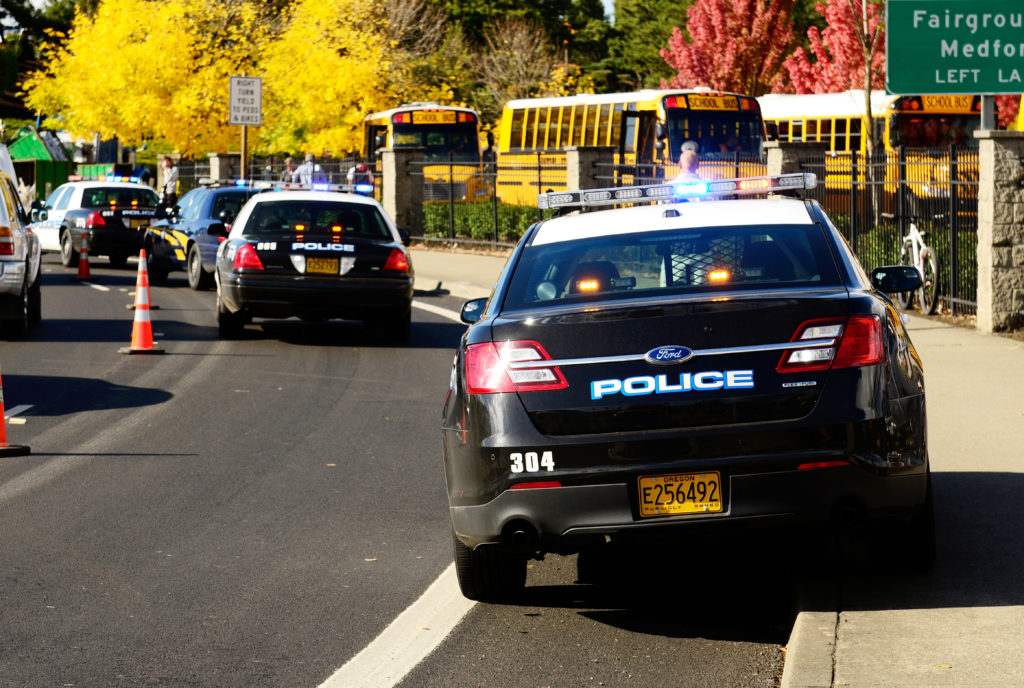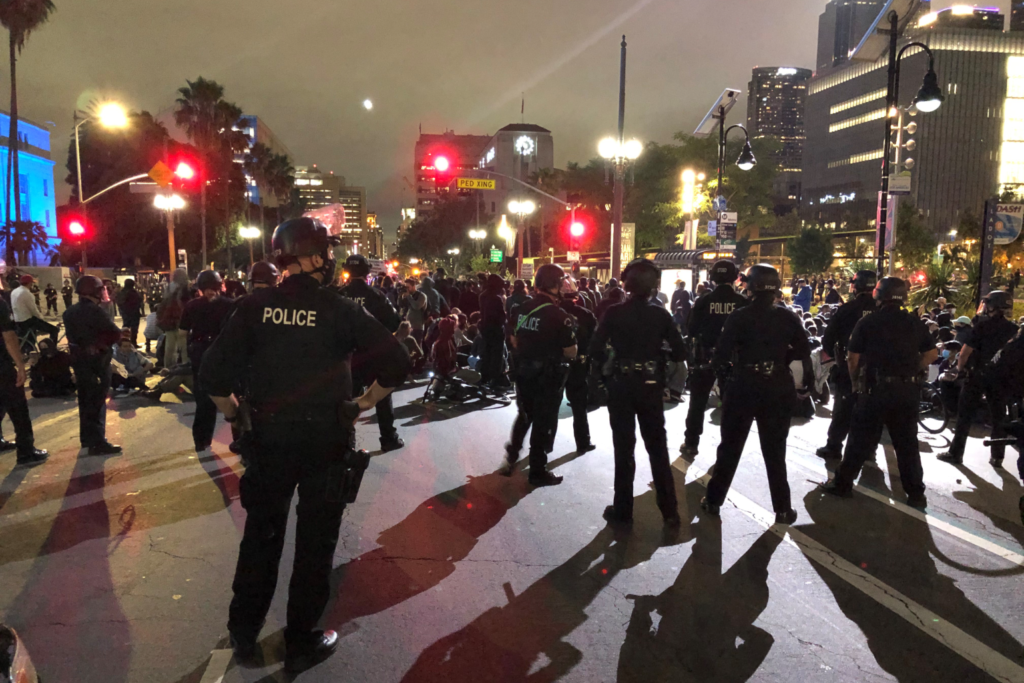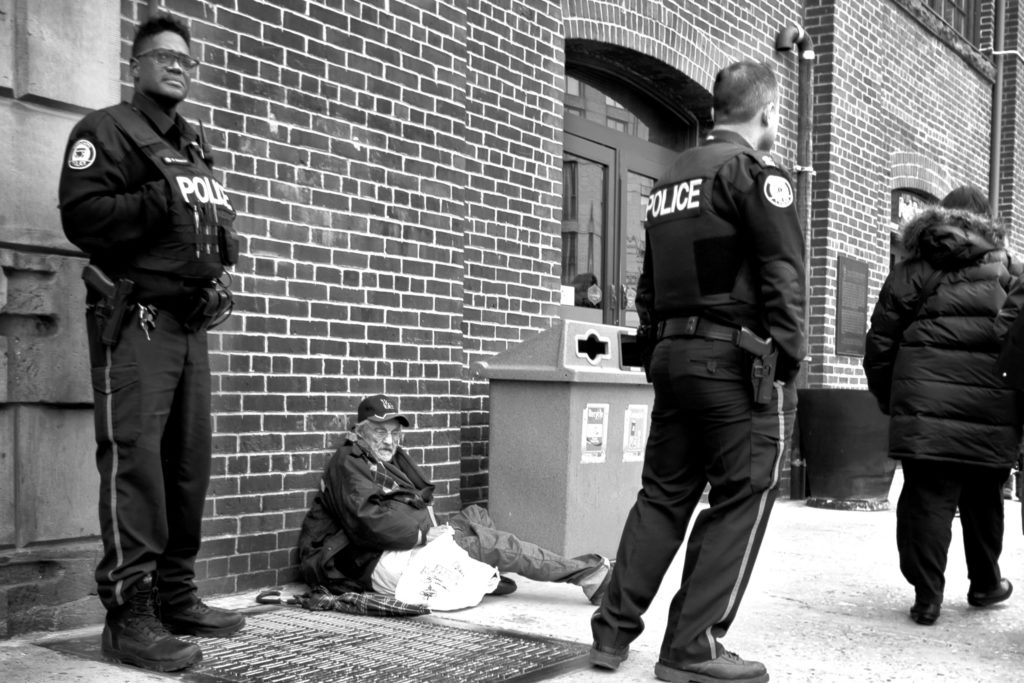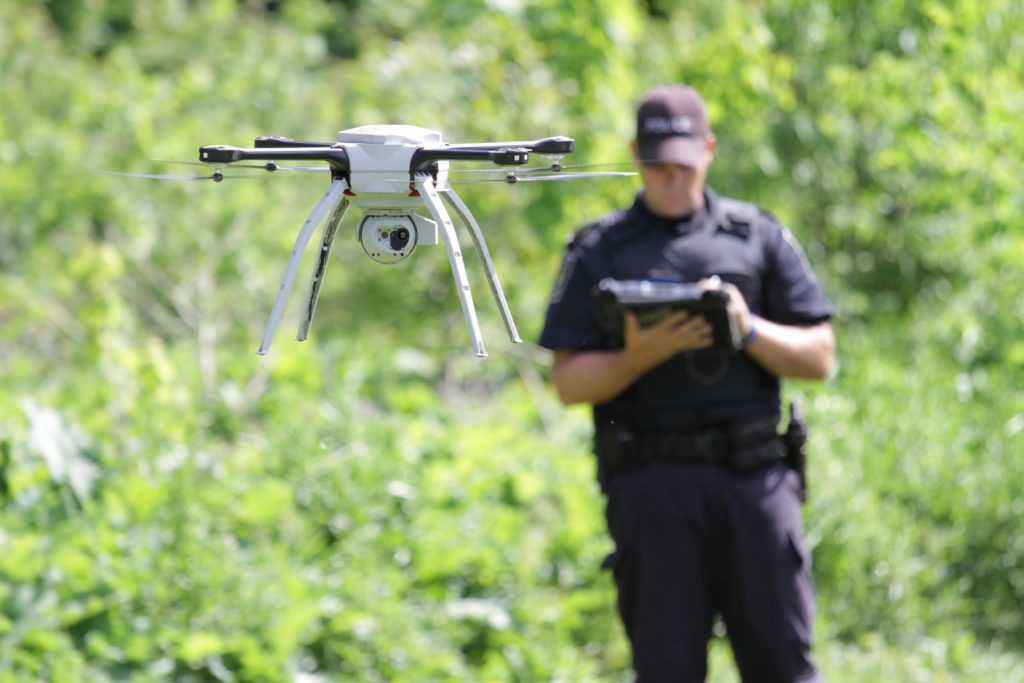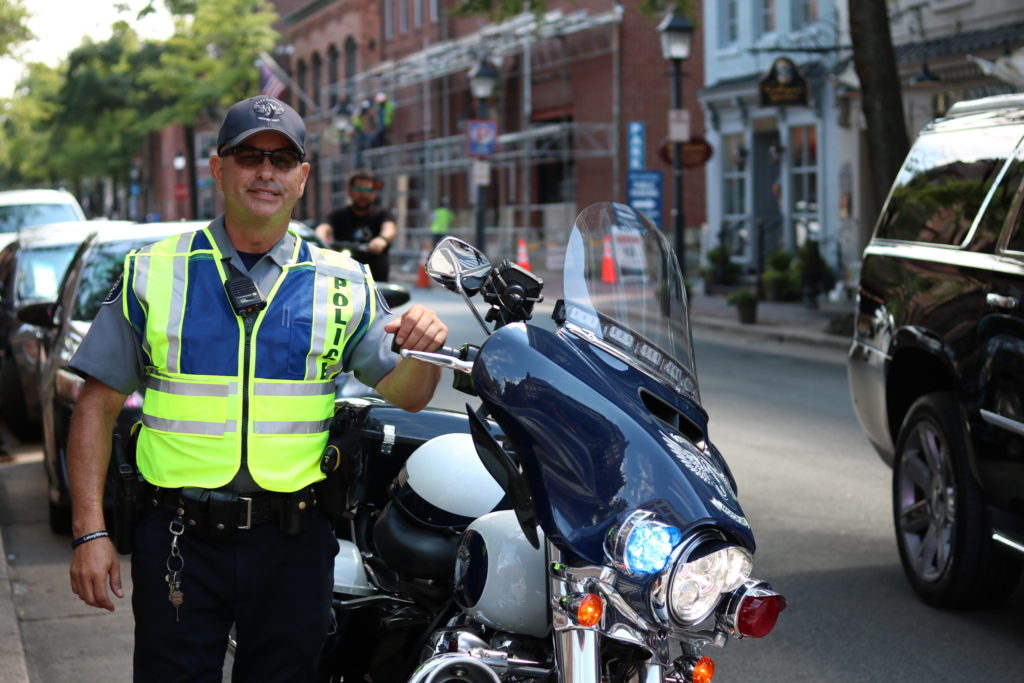National Law Enforcement Roadway Safety Program (NLERSP)
According to data collected from the Officer Down Memorial Page, 773 law enforcement officers were killed from 2009-2023 in collisions and struck-by incidents on the nation’s roadways. Simply put, more can be done to protect law enforcement officers on the roadways. The National Law Enforcement Roadway Safety Program (NLERSP) seeks to address this critical safety need by 1) training officers in tactics and behaviors that will improve their safety while operating on the roadways and 2) guiding agencies to implement policies, procedures, training, and equipment that can reduce officer-involved collisions and struck-by incidents.
The NLERSP provides a suite of no-cost, evidence-based training courses for executives, patrol officers, and trainers. These courses educate participants about the risk factors for officer-involved collisions and struck-by incidents and identify a variety of interventions and technological innovations that can reduce the likelihood of their occurrence. Additionally, the NLERSP provides customized technical assistance (TA) to help agencies make positive safety improvements. This assistance can include review and development of agency policies on roadway operations, review and assessment of an agency’s roadway safety training, assisting with the implementation of best practices, and/or providing research support to analyze an agency’s crash or injury data.
The NLERSP is sponsored by the U.S. Department of Justice, Bureau of Justice Assistance, and managed by the National Policing Institute, in partnership with NPI for Intergovernmental Research.
Enhancing Procedural Justice in Hot Spots Policing
Hot spots policing strategies focus on small geographic areas or places, usually in urban settings, where crime is concentrated. As a result, hot spots policing has been found to reduce crime without displacement. But aggressive hot spots tactics could have long-term negative effects on legitimacy perceptions, which are key to democratic policing and have been linked to citizen compliance with the law. The President’s Task Force on 21st Century Policing (p. 15) stressed the need to “specifically look at the potential for collateral damage of any given [crime fighting] strategy on community trust and legitimacy.” Procedural Justice (PJ) involves fair and respectful treatment of citizens by police. It has been argued that use of procedurally just approaches will increase legitimacy and reduce crime. The Procedural Justice in Hot Spots Policing study is the first to rigorously test these assumptions in the context of a field experiment in proactive policing.
This study provides important guidance for agencies regarding present approaches to crime hot spots. It responds to the President’s Task Force (p. 40) conclusion that “Police interventions must be implemented with strong policies and training in place, rooted in an understanding of procedural justice.” The project identifies whether the use of procedural justice training can enhance both the crime control effectiveness of hot spots policing, and its ability to achieve effectiveness while encouraging positive legitimacy evaluations. The study also serves as an important next step in integrating evidence-based practices in hot spots policing with knowledge about the ways in which police can increase levels of procedural justice to enhance citizen perceptions of police legitimacy.
Rural Violent Crime Reduction Initiative
Violent crime is on the rise in many jurisdictions, including rural communities. Rural law enforcement agencies are left to tackle these issues, often with a decreasing tax base, personnel shortages, expansive geographic territory, and lack of access to medical treatment that can make violent crimes more fatal than in urban settings. Many rural law enforcement agencies lack the number of sworn personnel needed to adequately cover their jurisdiction. This project is designed to support the development and implementation of problem-solving strategies that specifically address violent crime occurring in rural and affecting rural populations.
The Rural Violent Crime Reduction Initiative (RVCRI) is an effort, funded by the Bureau of Justice Assistance (BJA), to aid rural law enforcement agencies with improving investigations, implementing violent crime reduction strategies, and enhancing collaboration between local stakeholders. This will be achieved through the provision of training; deployment of technology; improvement of communication and collaboration between stakeholders; and expansion of community-based crime prevention programs and partnerships with victim services providers.

